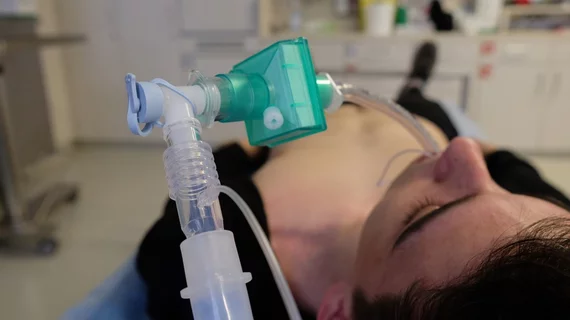Artificial intelligence analyzes CT scans to determine which COVID patients require ventilators
Case Western Reserve University scientists have developed an artificial intelligence tool that could make it easier to triage COVID-19 patients and deploy scarce resources during the pandemic.
To do so, they’re deploying “fast learning” computers that can quickly analyze chest CT scans, pinpointing hard-to-spot features that may signal if an individual requires a ventilator. The model has logged an accuracy rate as high as 75%, but experts hope to boost that number as they add further data, the institution said Monday.
“Our role may be for helping healthcare professionals deal with the triage situation in a more informed way because these are gut-wrenching decisions about who is going to get the most help against an aggressive disease,” Anant Madabhushi, PhD, a professor of biomedical engineering and head of the Center for Computational Imaging and Personalized Diagnostics, said in a April 27 statement.
Experts at the Cleveland-based institution first built their program using scans and datasets from the web and have further bolstered it with COVID-19 chest images from Wuhan, China. They’ve paired that radiological information with other details such as symptoms, whether the patient has two chronic conditions or more, and other info.
“Our hope is that by combining radiomic textural patterns of the infection on CT scans, along with other clinical and demographic parameters, we could help identify the patients who will likely need a ventilator from those who will not,” Madabhushi added.
The team is applying for funding from the Department of Veterans Affairs to further fuel their research. Madabhushi believes the tool could prove even more useful, if the U.S. experiences a second wave of infections in the fall, as some are predicting.

